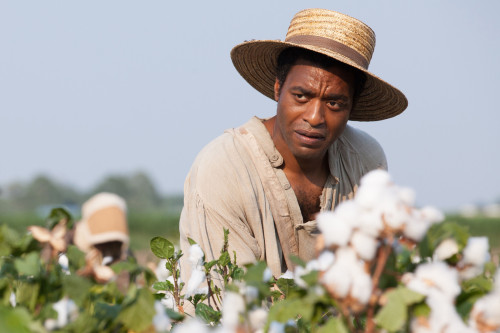12 Years a Slave
One of many films in this year’s Oscar contenders to be based on a true story, 12 Years a Slave tells the remarkable story of a terrible injustice. Solomon Northrup, played brilliantly by Chiwetel Ejiofor, is a free man living in upstate New York with a family and kids. Things take a turn for the worse when he is abducted and sold into slavery in the south (this was prior to the civil war). This film tells his story of fighting adversity, fighting at times to stay alive, and fighting to save some semblance of his dignity.
This is the second film I’ve seen within a very short time which addresses the the issue of race relations in America. Not long ago I saw the Butler (which I will probably review at some point) and even though both films are set during very different time periods, the overarching theme of pushing, often painfully, against the normalcy of racism is ever present.
The film was very ‘heavy’ in the way that it weighed you down with the knowledge of injustice. Like when you’re a witness to a heinous crime, and you feel the irresistible urge to speak up – except you’re in a movie theatre and you’re not supposed to speak. Throughout the film, the feeling of hopelessness and despair are often and keenly felt, to the point where I felt quite uncomfortable about the whole thing. Even at the film’s resolution, the viewer is left with a bit of leftover despair – he finds his freedom (I don’t consider that a spoiler, since the title quite strongly implies that his status as a slave is temporary) but he has still been robbed of twelve years of his life. (for personal reasons, being robbed of time during one’s life hits rather close to home)
Great characters drive this story. First a kindly slave owner, played by Bennedict Cumberbatch, and then a rather nasty one, a stand-out performance by Michael Fassbender. In fact, between his cold, heartless objectification and manipulation of the slaves, and his interaction with his estranged wife, played by Sarah Paulson, I would have given him the nod for best supporting actor, if it weren’t for the outstanding performance of Barkhad Abdi in his debut role in Captain Phillips. Towards the end of the film, we meet Brad Pitt, an abolitionist who doubles as deus ex machina, and brings the film to its swift, abrupt, and slightly jarring resolution.
Don’t get me wrong, this is a great film, but if I had to fault it, it would be for its pace and rather linear narrative. Not that there’s anything wrong with a linear narrative on its own, but in terms of raiding the storyteller’s toolbox for the means to keep the audience engaged, the acting really is left to do all of that on its own. The ending comes and hits you rather quickly, and for some inexplicable reason reminded me of the ending of Castaway. Many loose ends are left untied, but we accept that because it is, after all, based on a true story.
It won’t win best picture, but it might win best actor, best supporting actor, and possibly even best production design. And it’s good, you should watch it.


Leave a comment